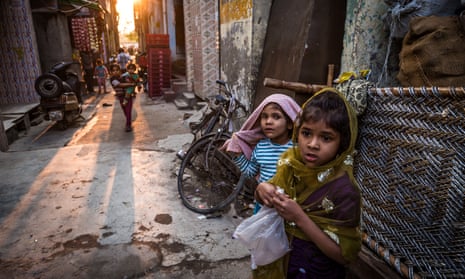Three years ago the world lined up behind an ambitious set of targets – the sustainable development goals – for 2030. The checklist included the eradication of extreme poverty, ending preventable child deaths and delivering quality universal education. As part of the pledge, governments committed to achieving the most rapid progress among populations left furthest behind.
To describe the 2030 project as being off track would constitute epic understatement.
There have been extraordinary achievements over the past 15 years on many fronts. Extreme poverty has fallen dramatically and child deaths have halved. Yet the pace of global poverty reduction is slowing and the number of extreme poor in Africa is still rising. On current trends there will still be more than 3 million preventable child deaths in 2030. Progress on malnutrition has stalled. And in an increasingly knowledge-based global economy in which automation threatens jobs, 617 million children are either out of school or set to emerge from school lacking basic literacy and numeracy skills.
Now as governments descend on Bali, Indonesia, this week for the International Monetary Fund/World Bank annual meetings, they once again have an opportunity to get behind an initiative that could transform prospects for global poverty eradication.
The World Bank is using this year’s gathering to launch a “human capital project”. No, it doesn’t sound very exciting. But the aim is to fundamentally reconfigure how governments view investment. The World Bank’s president, Jim Kim, will warn the Bali meeting that short-sighted approaches to economic growth are skewing towards economic infrastructure – such as new roads and bridges – and away from human capital investments in the health, education and nutrition of people. Sustainable economic development requires both.
Human capital is not a new idea. Adam Smith wrote about it in The Wealth of Nations. What is new is the World Bank giving finance ministers the wake-up call that underinvestment in human capital is not just catastrophic for the 2030 goals, but also bad for economic growth. The project will shine a spotlight on governments that underperform. The World Bank has also pledged to rebalance the focus on human capital in its own operations.
Inequality is at the heart of this shortfall. Poverty is falling too slowly, in part because the benefits of growth in Africa and elsewhere are skewed towards the wealthy. Child mortality is coming down, but death rates among the poorest children in many countries are still two to three times higher than those for the richest. Girls, children with disabilities and minority groups are also left behind. Social disparities are declining at a glacial pace, not least because governments have failed to act on a commitment to invest in truly universal health coverage.
Tackling the power relationships behind these inequalities will take more than policy pronouncements. Some of the governments that will wax lyrical on human capital at this week’s meetings in Bali have appalling records of their own. Countries such as India and Nigeria are spending less than 1% of national income on health, effectively denying their citizens access to care – and consigning children to early graves. Like many of the governments it will justifiably criticise, the World Bank itself has been underinvesting in education.
One-off grading exercises will serve little purpose. The World Bank and UN agencies should relentlessly keep the spotlight on human capital inequalities within countries – and track the pace at which those inequalities are being closed. If governments are serious about the 2030 development goals, they will need to align public spending priorities with a dramatically enhanced commitment to equity.
That means investing in health and education systems that reach the poor with decent, quality services, and in the progressive taxation systems needed to underpin those services. Meanwhile, the IMF will need to loosen the fiscal policy straitjackets that accompany its loans and undercut social spending, and also focus on the quality of money spent – it could do far more to target resources wasted through corruption.
None of this will happen without the engagement of campaigners. Ten years ago we lined up behind banners pledging to make poverty history. The “human capital project” has less of a ring to it. But, make no mistake, this is a cause worth fighting for.
